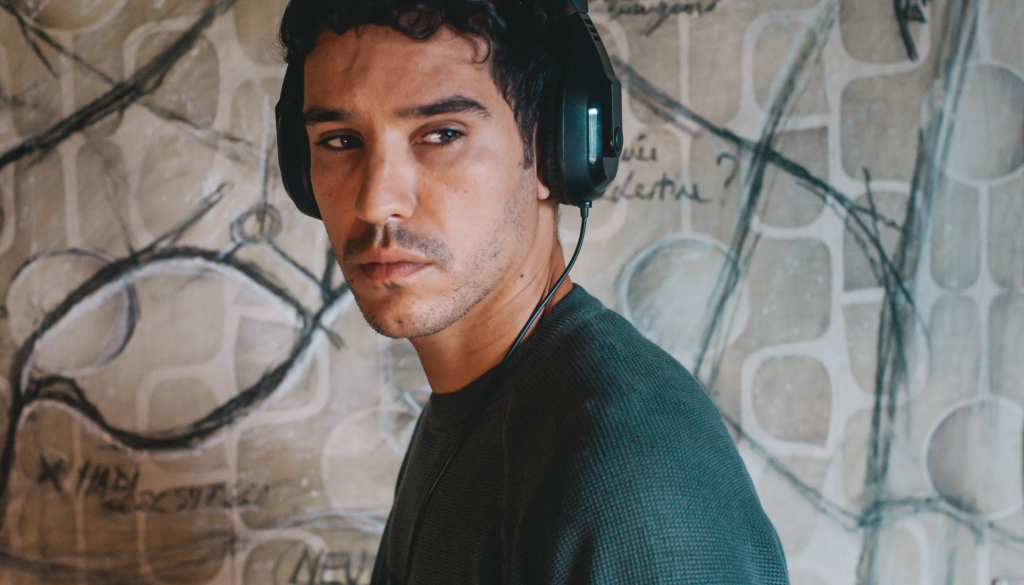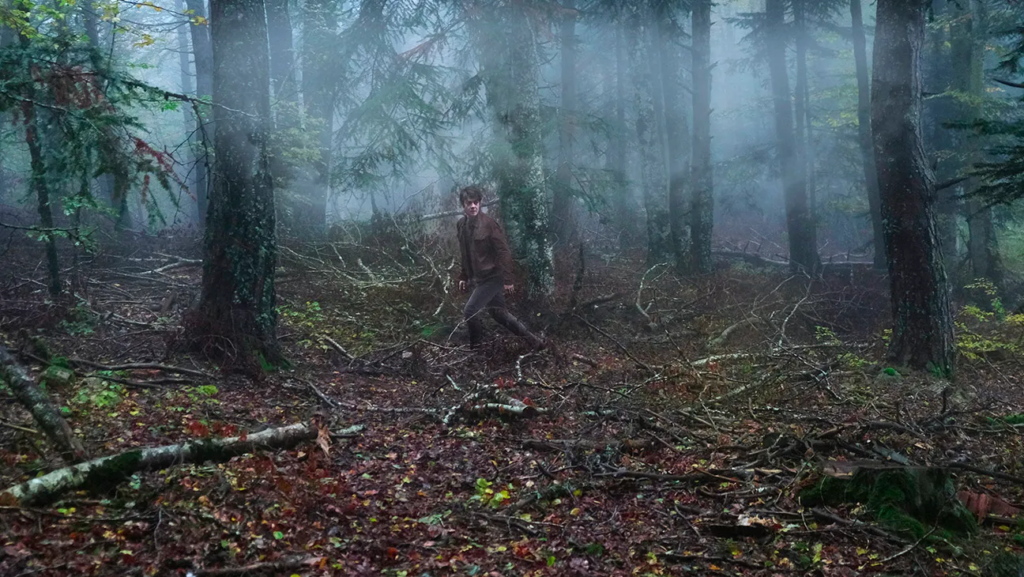Director: Jonathan Millet
Writers: Jonathan Millet
Stars: Adam Bessa, Tawfeek Barhom, Julia Franz Richter
Synopsis: Hamid joins a secret group tracking Syrian regime leaders on the run. His mission takes him to France, pursuing his former torturer for a fateful confrontation.
Jonathan Millet’s feature-length debut Ghost Trail (Les fantômes) is a neatly crafted film that explores the psyche of a Syrian refugee via a spy-genre model. Millet uses an exciting way of exploring the tensions and angst a refugee goes through during and after the significant changes in their lives, especially when encountering ghosts of the past. However, such deconstruction of the espionage subgenre tends to drag across the film’s fascinating premise. Ghost Trail begins in 2015, when we see a man named Jamid (Adam Bessa, an underrated, talented actor) waiting exhausted alongside some other men in the back of a truck. They look worn out and tired of having to face these injustices daily.

The camera focuses on the sun burning the Syrian desert as they head toward the light until there is no return. The film flashes forward to when Hamid lives in Strasburg, France, two years later. In this time that we miss, Hamid has been very busy – doing various jobs, talking to other Syrians from exile circles, as well as trying to find a person who he deems is his lost cousin from the war. It is slowly revealed that our protagonist is hiding secrets, so his life is very isolated; he even lies to his mother about living a successful life in Berlin. Hamid is part of a “clock-and-dagger” European-based organization that tracks down war criminals responsible for the atrocities that occurred under Bashar’s regime.
These people Hamid and company are searching for use fake names and disguises, hiding themselves within all of Europe – camouflaging to begin their new lives. With these details known, you realize that Hamid is not looking for his cousin. Instead, he is searching for a man named Harfaz, his torturer from the time he was imprisoned in Sednaya. This is an intriguing premise with many possibilities as the spy games begin and the tension rises. Miller doesn’t indulge in the flash and action that modern spy films tend to use; instead, he takes a more grounded approach to the genre, focusing on Hamid’s perspective during his search for the man who tormented him.
We get plenty of close-ups of Hamid’s stone-cold expressions in the process, further adopting the persona of a lone wolf captured with ease by Bessa throughout the film. Ghost Trail begins to go into a darker territory thematically when Hami thinks he has found Harfaz near Strasbourg. Hamid only has a blurry picture of him and can’t rely on facial recognition, as Harfaz put a bag over his head when torturing him. But his presence still puts a chill down his spine; the way the man talks, smells, and walks reminds Hamid of Harfaz. However, the key is in the details. Hamid notices the man has an injured hand, a mark he recognizes immediately. That’s when he questions what his next move will be.
The man Hamid believes is his torturer goes by the name of “Hassan” (Tawfeek Barhom), who lives a comfortable life devoid of any complications. This makes Hamid even more furious, as “Hassan” is living a life that he couldn’t have – one taken away from him forcefully. The audience feels his pain through Bessa’s solid performance. The man was robbed of a prosperous life with his wife and daughter, who died during the war. But he now lies deep in isolation; his PTSD haunts his daily living. Through this isolation, MIllet reflects on how the world moves on from these severe problems worldwide. He questions if the world wants, or is interested, in bringing these war criminals to justice instead of letting them go on with their lives as if nothing has happened.
When Hamid finally decides how to approach the situation, Ghost Trail then plays off as a game of cat and mouse, where Hamid is slowly trying to get closer to “Hassan;” it even reaches a point where he can smell him, which has the audience worried about his actions. During these moments, you get the best and worst assets that MIllet offers in his feature debut. Ghost Trail, unfortunately, ends up dragging a lot when developing this hunt. By the last act, you feel pretty tired of the lone wolf procedure of catch and follow, and the film’s strong ending doesn’t manage to hit as hard as one would like.

Sometimes, Miller’s direction hints at Francis Ford Coppola’s The Conversation via sensory clues and details revealed instead of lots of violence, which would have the film go to an unwanted exploitative territory. However, Millet runs out of ideas to keep the audience completely hooked on the narrative. For the most part, Ghost Trail remains engaging enough to make us intrigued about where it is heading and the exploration of a refugee’s broken psyche thanks to the solid performances and the aforementioned sensory element. I think there should have been a more crafty or savvy manner in which everything came to a close in the last few minutes.





